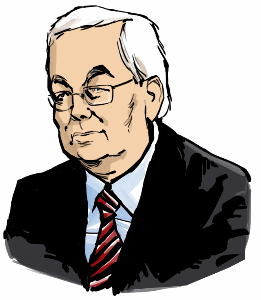© Gunnar Tómasson
22 May 2016I.
I. The official story
(Alfred Dodd)
Every schoolboy knows the story told in their history books how Francis Bacon one snowy day on or about All Fools Day, 1 April 1626, drove with the King’s Physician, Sir John Wedderburn, to Highgate and that at the foot of the Hill he stopped, bought a fowl, and stuffed it with snow with his own hands in order to ascertain whether bodies could be preserved by cold. During the procedure, we are told, he caught a chill, and instead of Dr. Wedderburn driving him back to Gray’s Inn (whence he had come) or taking him to some warm house, the worthy doctor took him to an empty summer mansion on Highgate Hill, Arundel House, where there was only a caretaker; and there Francis Bacon was put into a bed which was damp and had only been „warmed by a Panne“ (a very strange thing for a doctor to do) with the result that within a few days he died of pneumonia. Dr. Rawley, his chaplain, says that he died „in the early morning of the 9th April, a day on which was COMMEMORATED the Resurrection of Our Saviour“.
That is the story and this is Francis Bacon’s last letter:
To the Earle of Arundel and Surrey.
My very good Lord,
I was likely to have had the fortune of Caius Plinius the Elder, who lost his life by trying an experiment about the burning of the mountain Vesuvius. For I was also desirous to try an experiment or two, touching the conservation and induration of bodies.
As for the experiment itself, it succeeded excellently well; but in the journey between London and Highgate, I was taken with such a fit of casting, as I knew not whether it were the stone, or some surfeit of cold, or indeed a touch of them all three. But when I came to your Lordship’s house, I was not able to go back, and therefore was forced to take up my lodging here, where your housekeeper is very careful and diligent about me; which I assure myself your Lordship will not only pardon towards him, but think the better of him for it. For indeed your Lordship’s house is happy to me; and I kiss your noble hands for the welcome which I am sure you give me to it.
I know how unfit it is for me to write to your lordship with any other hand than mine own; but in troth my fingers are so disjointed with this fit of sickness, that I cannot steadily hold a pen…
Here the letter ends abruptly. Whatever else was written has been suppressed by Sir Tobie Matthew, one of the Rosicrosse, on which Spedding remarks, “It is a great pity the editor did not think fit to print the whole.” …. (Francis Bacon’s Personal Life-Story, Rider & Co, London, 1986, pp. 539-540.)
II. The Man Who Saw Through Time
(Loren Eiseley)
Not all men are fated like Sir Francis Bacon, to discover an unknown continent, and to find it not in the oceans of this world but in the vaster seas of time. Few men would seek through thirty years of rebuff and cold indifference a compass to lead men toward a green isle invisible to all other eyes. “How much more,” he wrote in wisdom, “are letters to be magnified, which as ships pass through the vast seas of time, and make ages so distant to participate of the wisdom, illumination, and inventions, the one of the other…..” “Whosoever shall entertain high and vaporous imaginations,” he warned, “instead of a laborious and sober inquiry of truth, shall beget hopes and beliefs of strange and impossible shapes.” It is ironic that Bacon, a sober propounder of the experimental method in science – Bacon, who sought so eloquently to give man control of his own destiny – should have contributed, nevertheless, to that world of “impossible shapes” which surrounds us today.
Appropriately there lingers about this solitary time voyager a shimmering image of fable, an atmosphere of mystery, which frequently closes over and obscures the great geniuses of lost or poorly documented centuries. Bacon, who opened for us the doorway of the modern world, is an incomparable inspiration for such myth-making proclivities. Rumors persist that he did not die in the year 1626 but escaped to Holland, that he was the real author of Shakespeare’s plays, that he was the unacknowledged son of Queen Elizabeth. Rumor can go no further; it is a measure of this great discoverer’s power to captivate the curiosity of men – a power that has grown century by century since his birth in 1561. In spite of certain mystifying aspects of his life, there is no satisfactory evidence sufficient to justify these speculations, though a vast literature betokens their fascination and appeal. (The Man Who Saw Through Time, Revised and enlarged edition of Francis Bacon and the Modern Dilemma, Charles Scribner’s Sons, New York, 1973, pp. 49-50)
III. Reference Saga Cipher Values¹
(Gunnar Tómasson)
627876
526846 = Francis Bacon´s Last Letter
101030 = Rosicrosse sentence
627876
IV + V = 621625 + 6251 = 627876
IV. Louers in peace, leade on our dayes to age!
(Julius Cæsar, Act V, Sc. i – First Folio)
621625
Cassius
12879 = Now most Noble Brutus,
17568 = The gods today stand friendly, that we may,
15686 = Louers in peace, leade on our dayes to age!
23178 = But since the affayres of men rests still incertaine,
21190 = Let’s reason with the worst that may befall.
17931 = If we do lose this Battaile, then is this
19984 = The very last time we shall speake together:
15404 = What are you then determined to do?
Brutus
15472 = Euen by the rule of that Philosophy,
14051 = By which I did blame Cato, for the death
19501 = Which he did giue himselfe, I know not how:
14406 = But I do finde it Cowardly, and vile,
19113 = For feare of what might fall, so to preuent
19095 = The time of life, arming my selfe with patience,
20623 = To stay the prouidence of some high Powers,
11326 = That gouerne vs below.
Cassius
13765 = Then, if we loose this battaile,
16527 = You are contented to be led in Triumph
14976 = Thorow the streets of Rome.
Brutus
7042 = No, Cassius, no:
13000 = Thinke not thou Noble Romane,
19844 = That euer Brutus will go bound to Rome,
16711 = He beares too great a minde. But this same day
19149 = Must end that work the Ides of March begun.
20191 = And whether we shall meete againe, I know not:
19155 = Therefore our euerlasting farewell take:
17976 = For euer, and for euer, farewell Cassius,
17336 = If we do meete againe, why we shall smile;
21165 = If not, why then, this parting was well made.
Cassius
18046 = For euer, and for euer, farewell, Brutus:
14916 = If we do meete againe, wee’l smile indeed;
21535 = If not, ’tis true, this parting was well made.
Brutus
17661 = Why then leade on. O that a man might know
17668 = The end of this dayes businesse, ere it come:
17050 = But it sufficeth, that the day will end,
20505 = And then the end is knowne. Come ho, away. Exeunt.
621625
V. The Saga Cipher Evidence
(My construction)
6251
Exit
-4654 = Brutus
Shines Forth
10805 = Sweet Swan of Avon
Q.E.D.
100 = The End
6251
¹ Calculator for converting letters to cipher values is at:
http://www.light-of-truth.com/ciphersaga.htm

 Gunnar Tómasson
Gunnar Tómasson